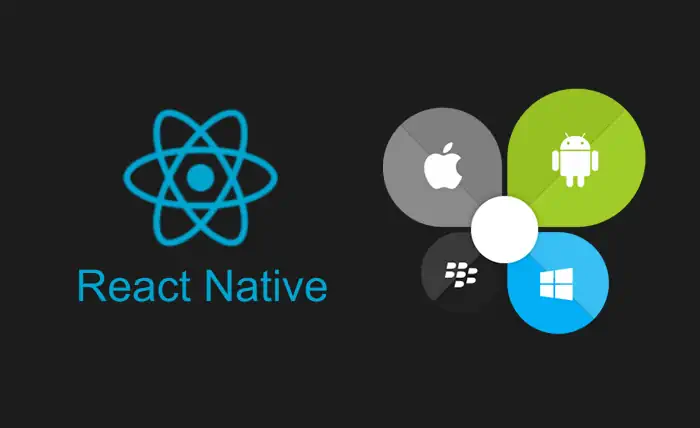While there is no dearth of ambitious app development projects to build the next success story, often they don't miss out on the technology front. Well, to create an app that leads from the front, the developers also need to choose the right platform and the language. Those days are gone when you take build native apps separately for iOS and Android as the day demands to create maximum impact with minimum investment and effort.
This is precisely why hybrid apps took the imagination of so many developers worldwide. Now, by using a simple language with rich native elements, you can build an app for both iOS and Android platforms. React Native among several others emerged as the most popular and effective hybrid app development language with an array of benefits. Let us explain here the advantages of React Native for hybrid app development.
Introducing React native
React Native is a free and open-source library developed and maintained by Facebook for building iOS and Android apps with native UI and user experience. The framework has gained quick popularity simply because of its component-based modular approach to app development that allows a react native app development company to reuse the code for building apps across multiple platforms. In spite of the cross-platform hybrid development approach, the apps built using React Native offers an identical or similar user experience to apps built using Swift for iOS or Java for Android.
Let's have a quick look at the pros and cons of React Native.
Pros
- Code reusability: The React Native allows you to write code for the web and utilize 80% of this code for mobile apps on iOS and Android platforms. While this reusability of the code makes the development process simple, it never fails to deliver a native user experience to the users.
- Fast-paced development: Thanks to the reusability of the code React Native development projects enjoy a faster pace of development and quicker time to market.
- Native user experience: React Native by extensively using the native components always ensures delivering a highly native user experience in spite of the reusable codebases.
- Unmatched speed and performance: When you use React Native for building apps on multiple mobile platforms and the web, it ensures delivering superb performance and speed, you only get through native apps.
- Hot Reload: The Hot reloading feature of the React Native helps the developers to get a live preview of the code and its actual impact while coding the app. This helps developers to do away with coding errors.
- Easy to integrate: React Native can also be integrated into the existing apps to boost the native user experience and performance.
- Time and cost-saving: Thanks to the ease of using the same code for multiple platforms it allows developers saving plenty of development cost and time.
Cons
- Native coding cannot be fully avoided: In spite of the reusability of the same code for multiple platforms, to deliver the complete native user experience on each platform you at least need to write some portion of the native code.
- Not enough third-party APIs: React native is still a much younger language and so, you don't find a lot of third-party components and APIs for adding value to your development process.
- React Native is not lean: Another negative aspect of React Native is that it is not particularly lean in file size. It is seen that the file size of the React Native APK and IPA is several MBs bigger even compared to the apps built with it.
Why developers prefer to React Native for hybrid app development?
Now that the basic pros and cons of React Native are clear to us, it is time to explain the advantages of this framework in the context of hybrid app development. React Native offers an array of value propositions that made it a great framework for hybrid app development.
Skill considerations
React Native makes things simple for a mobile app development company dealing with cross-platform and hybrid app development projects. Instead of delegating team with prior expertise with JAVA, Swift or C++, all they need are JavaScript developers having a deep understanding of the native UI libraries and hybrid app development.
A creative and supple solution
React Native offers a very creative and supple solution for a variety of app development projects with different expected outcomes. React Native allows the development company to execute an array of complex features with simple code. The Live Reload feature helps the developers to preview the coding effect while building the app and this ensures more precision, perfection and less coding errors.
Smooth transition from web to mobile
React Native by offering a very fragmented module and intuitive codebase helps developers understanding the code sequence easily. This simple and streamlined approach helps to port the web view to a mobile app interface easily and effortlessly. If a business runs a professional website, the hybrid React Native development easily can help it turned into native iOS and Android app.
Lean and low-footprint on memory
With the compatible third-party plugins and tools, a smooth runtime is guaranteed by React Native. In spite of ensuring faster response time and smooth runtime React Native apps are lightweight on the memory iOS and Android apps. This makes the hybrid apps built with React Native more performance optimized.
Conclusion
React Native has become the champion of hybrid development because of its unique component-based, modular and native-focused development approach. The shortcomings of React Native still look negligible in comparison to most of the cross-platform frameworks.









